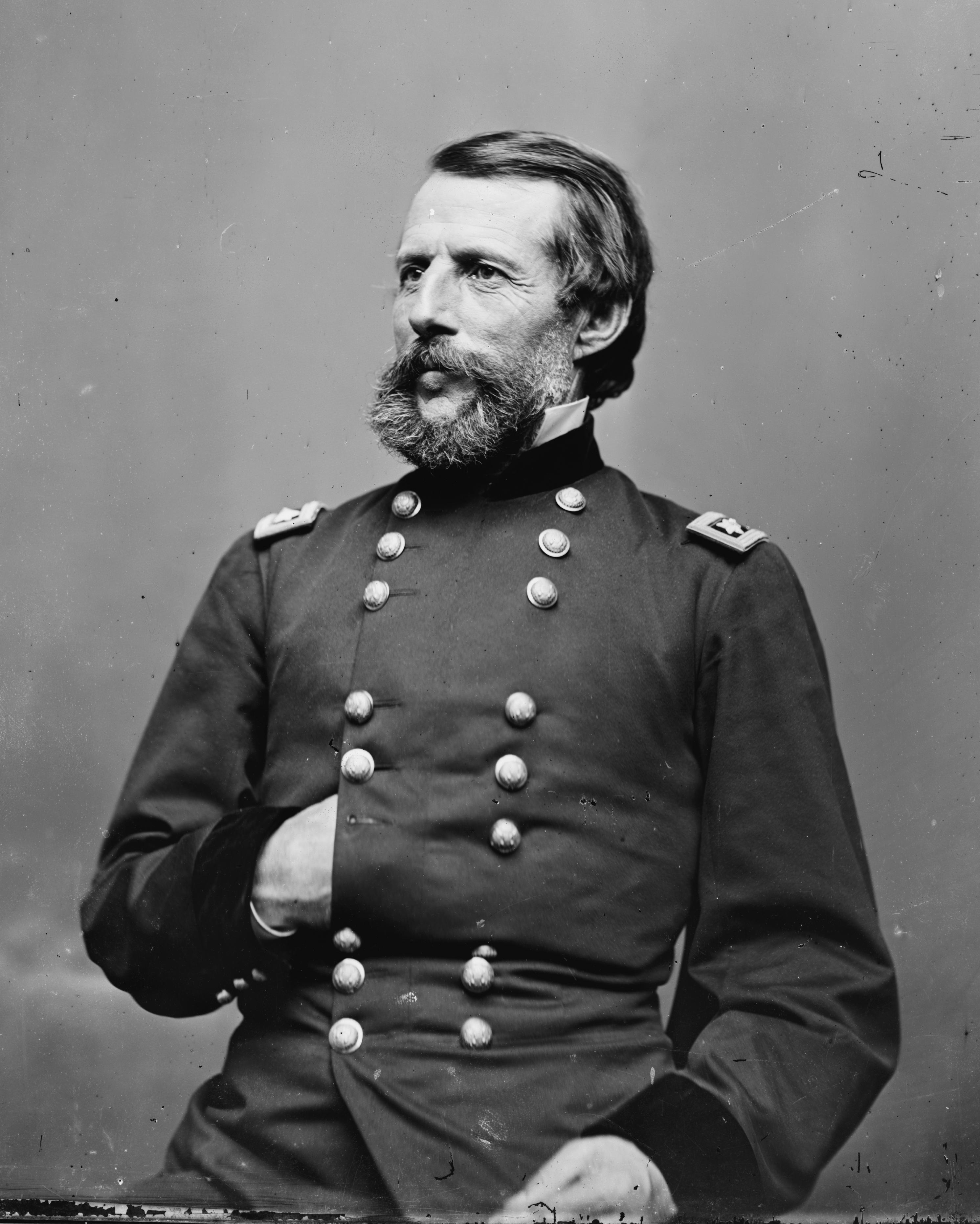Erasmus D. Keyes

Erasmus Keyes was born on May 29, 1810 in Brimfield, Massachusetts. His family moved to Kennebec County, Maine, when he was still a young boy. He pursued a military career and applied to the U.S. Military Academy at West Point where he was accepted. He attended West Point from 1828-1832, graduating 10th out of a class of forty-five.
His first military assignment was in the 3rd Artillery Regiment at Fort Monroe, Virginia, and then later in the fortifications of Charleston Harbor, South Carolina from 1832-1833. From 1833-1837, he served on staff duty at Headquarters of the Eastern Department. In 1837, as a first lieutenant, he was given the remarkable opportunity to serve as Aide-de-Camp to Brevet Major General Winfield Scott until 1841.
Unlike many of his peers, Keyes would not see military action during the War of 1846-1848. During this time, he served as an instructor of artillery and cavalry back at West Point. Through the 1850s, he served in the Pacific Northwest. In 1858, he was promoted to major while in the garrison at San Francisco. In 1860, he was appointed as military secretary to Major General Winfield Scott, now General-in-Chief of the U.S. Army.
In 1861, Keyes was briefly appointed colonel of the 11th U.S. Infantry, and then briefly served on the staff of New York's governor. As a brigadier general of volunteers, he commanded his brigade at the First Battle of Bull Run on July 21, 1861. In 1862, he was given command of the newly created IV Corps in the Army of the Potomac which he led through the Peninsula Campaign and other actions in 1862 and 1863.
However, although Keyes was promoted to major general of volunteers in 1863, he never seemed to have the right connections for further commands. He was removed from command of his corps for not making an aggressive demonstration against Richmond. When Keyes requested an investigation, he was denied. He served on various Army boards until he resigned and retired in 1864.
Following retirement, Keyes had a very successful civilian career in California. He worked closely with veterans organizations and wrote often concerning his experiences. He died at the age of 85, while on a trip to Nice, France with his wife.
Camp Keyes in Augusta bears his name.